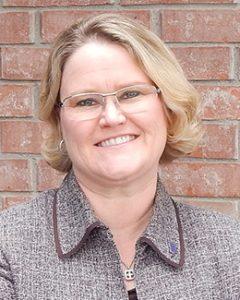IDEAS
Through storms to safe harbor
By Jo Beth Jimerson and Cara Jones
Categories: Change management, Leadership, Social & emotional learning, System leadershipApril 2024
Read the remaining content with membership access. Join or log in below to continue.
Sed ut perspiciatis unde omnis iste natus error sit voluptatem accusantium doloremque laudantium, totam rem aperiam, eaque ipsa quae ab illo inventore veritatis et quasi architecto beatae vitae dicta sunt explicabo. Nemo enim ipsam voluptatem quia voluptas sit aspernatur aut odit aut fugit, sed quia consequuntur magni dolores eos qui ratione voluptatem sequi nesciunt. Neque porro quisquam est, qui dolorem ipsum quia dolor sit amet, consectetur, adipisci velit, sed quia non numquam eius modi tempora incidunt ut labore et dolore magnam aliquam quaerat voluptatem.
References
Bourke, R. & Loveridge, J. (Eds). (2018). Radical collegiality through student voice: Educational experience, policy, and practice. Springer.
Chabris, C.F., Weinberger, A., Fontaine, M., & Simons, D.J. (2011). You do not talk about Fight Club if you do not notice Fight Club: Inattentional blindness for a simulated real-world assault. i-Perception 2, 150-153.
Forbes, H.T. (2012). Help for Billy: A beyond consequences approach to helping challenging children in the classroom. Beyond Consequences Institute.
Fullan, M. (2016). The new meaning of educational change (5th ed.). Teachers College Press.
Hammond, Z. (2018). Culturally responsive teaching puts rigor at the center. The Learning Professional, 39(5), 40-43.
Heifetz, R. & Linsky, M. (2017). Leadership on the line: Staying alive through the dangers of change. Harvard Business Review Press.
Hochschild, A.R. (2012). The managed heart: Commercialization of human feeling. University of California Press.
Khalifa, M. (2020). Culturally responsive school leadership. Harvard Education Press.
Neff, K. (2022). Self-compassion: Theory, method, research, and intervention. Annual Review of Psychology, 74, 193-218.
Smith, D.D. (2022, July 21). How leaders can escape their echo chambers. Harvard Business Review. hbr.org/2022/07/how-leaders-can-escape-their-echo-chambers
Starratt, R.J. (2012). Cultivating an ethical school. Routledge.
Categories: Change management, Leadership, Social & emotional learning, System leadership
Recent Issues
NAVIGATING NEW ROLES
April 2025
Whether you’re new to your role or supporting others who are new,...
LEARNING DESIGNS
February 2025
How we learn influences what we learn. This issue shares essential...
BUILDING BRIDGES
December 2024
Students benefit when educators bridge the continuum of professional...
CURRICULUM-BASED PROFESSIONAL LEARNING
October 2024
High-quality curriculum requires skilled educators to put it into...













